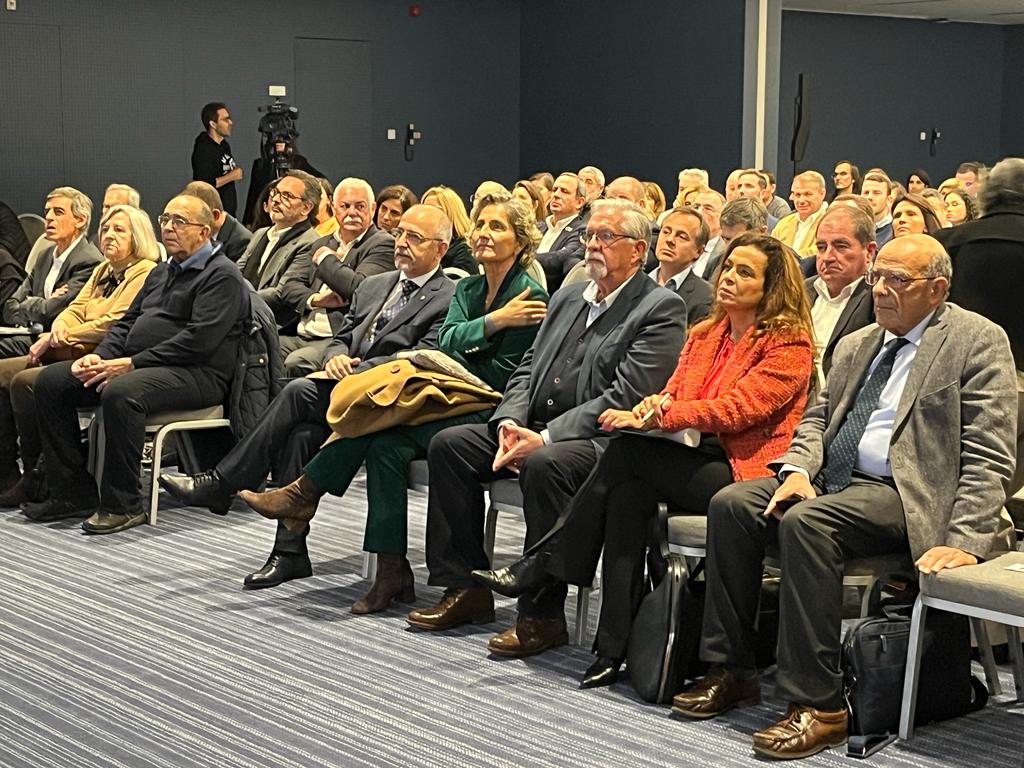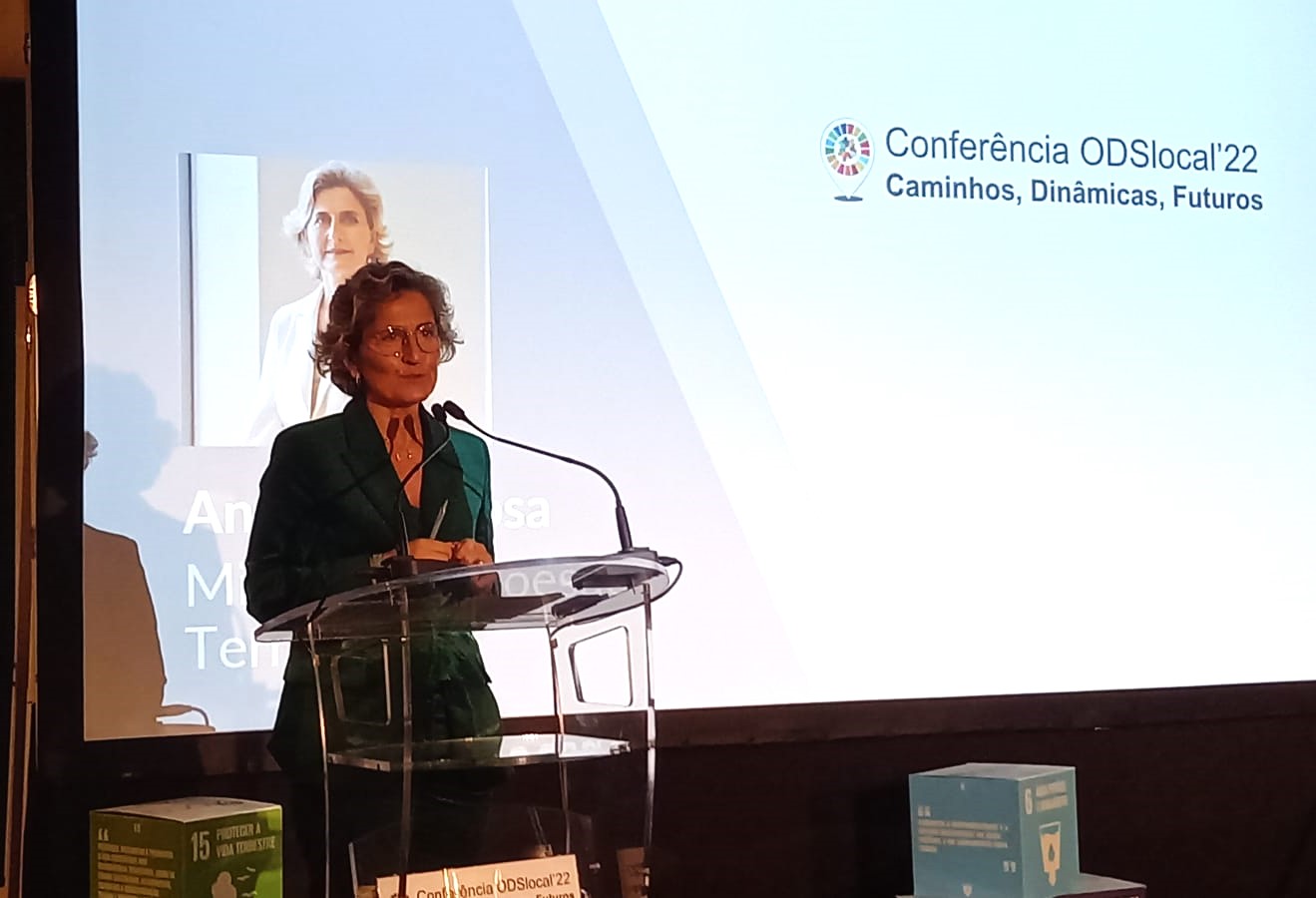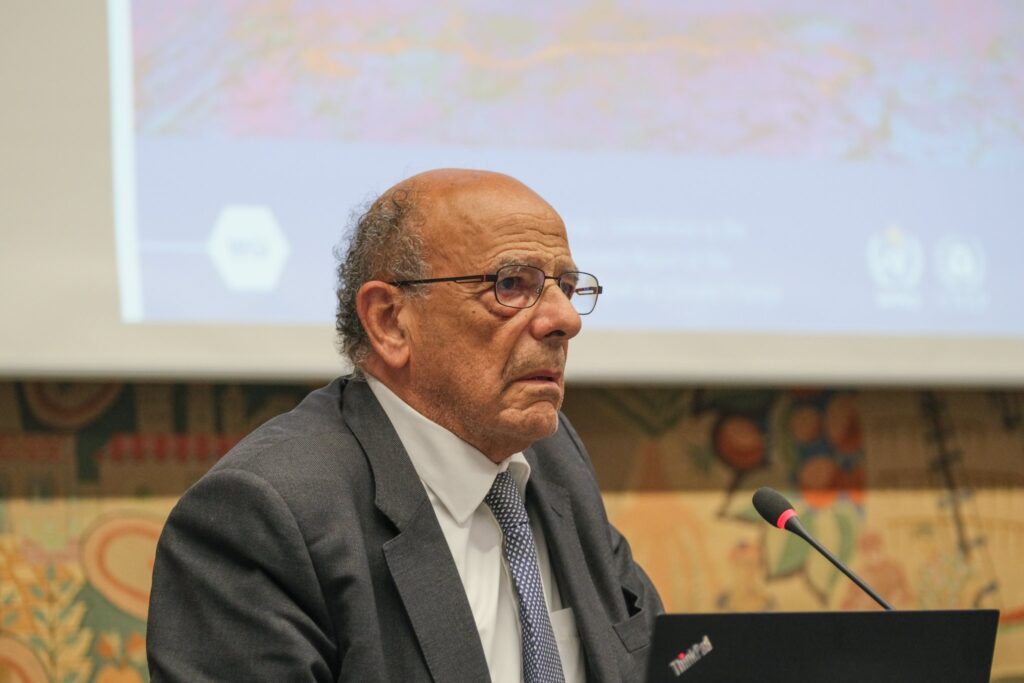What if, to combat the problem of drought, the Algarve started to reuse urban wastewater? Filipe Duarte Santos, one of the main Portuguese specialists in climate change, has no doubt that, if he does, the region will live «much more rested in the next droughts». It is enough, for this, to overcome “a certain conservatism”.
The challenge was left this Wednesday, December 7th, on the sidelines of the conference “ODSlocal'22“Paths, Dynamics, Futures” which took place in Almancil, where Filipe Duarte Santos participated as president of the National Council for Environment and Sustainable Development (CNADS), an entity that collaborates in the coordination of the “ODSlocal” project.
The specialist knows the reality of the Algarve well, having collaborated in the preparation of the Intermunicipal Plan for Adaptation to Climate Change, presented in 2019.
Questioned by journalists about whether the region has already managed to move from theory to practice, the specialist guaranteed that he notes a “great availability on the part of municipalities for environmental issues, sustainable development and, in particular, for issues of climate action”.
But, he also said, “there has been a lack of reuse of urban wastewater”.

“There, in fact, there has been a delay. Some municipalities have taken this initiative, which allows them, for example, to water golf courses or use it to wash city streets. However, from the point of view of the central administration, that is, the Government, there has been a certain delay in this area», lamented Filipe Duarte Santos.
For the professor, a specialist in climate change, this type of "circular economy application" involves "treating urban wastewater so that it can be used to irrigate golf courses, wash streets, irrigate in general" or , in certain circumstances, «with a much more demanding treatment, for human consumption».
«I myself have already had a beer made with water like that», joked Filipe Duarte Santos, who gave the Spanish example.
«In Portugal, these APR (Water for Reuse) correspond to only 1 or 2%, while here next door, in Spain, they are 10%. And Spain has regions where it rains less than in Portugal», he exemplified.
So, what's left to move forward?
For Filipe Duarte Santos, «entities are afraid» that the use of these waters «is not pleasant for users».
«The entities think: “Is it really necessary? So now we're going to water lettuces with water that has passed through our toilets? We don't need this: this is disruptive, it's not good. We don't need that in Portugal – we have enough water”».
Except that, for the specialist, «it is necessary to overcome these difficulties», as well as «a certain conservatism» because «the world is changing».
Filipe Duarte has "no" doubts that, in addition to desalination, this is one of the solutions to alleviate the problem of water shortages in the Algarve.
“This is circular economy! It is about applying it to the waters and we will live much more rested in the next droughts », he considered.

Furthermore, the issue of combating climate change – which is one of the Sustainable Development Goals – was also addressed by the Minister of Territorial Cohesion who participated in the conference “ODSlocal'22“Paths, Dynamics, Futures”, in Almancil.
Climate change, he defended, «is an emergency», but that cannot always be fought.
«We have problems, problems that are being solved, but against phenomena in which, in minutes, it rains what sometimes rains in months... These are catastrophes», he said.
Ana Abrunhosa recognized, even so, that it is necessary «to make investments and plan the territory so that these occurrences decrease and so that the territories are more resilient».
«There is an urgent need to replan cities – that is why it is so important to also make the territories better prepared, but this is not something we can do overnight. This is also why the participation of those who, on a daily basis, work with the populations is important: the municipalities », he concluded.



















Comments